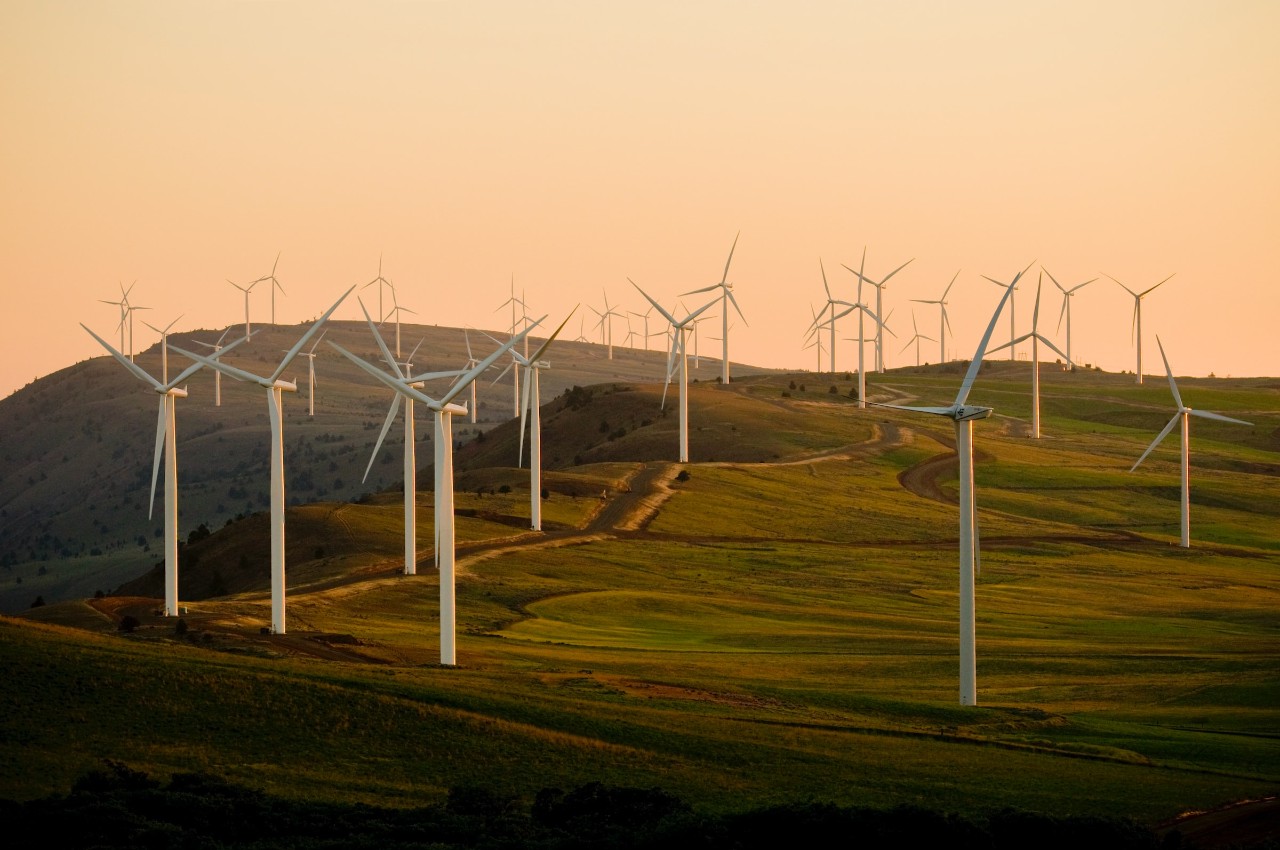
UC study: 'Save Money' is the more persuasive renewable energy message
Researchers find there’s more support for renewable energy if the message communicates cost
If climate change advocates want people from different perspectives to support renewable energy sources such as wind and solar power, they might look to a University of Cincinnati study that found people on both sides of the political aisle are more enthusiastic about the cost savings aspect of renewables than global warming or job creation.
The study currently appears in the journal Nature Energy.

Abel Gustafson is an assistant professor of public relations at the University of Cincinnati. Photo/UC Marketing + Communications.
“Overall, we found that — among both Republicans and Democrats — reading information about renewable energy’s cost savings was more persuasive than information about its benefits for global warming or the economy,” says the study’s lead author Abel Gustafson, a UC assistant professor of public relations in the College of Arts and Sciences.
Gustafson, and research colleagues at Yale and Georgetown universities, presented four groups of study participants with print materials about renewable energy. Each group’s materials had different messaging, emphasizing the benefits of renewable energy either with regard to global warming, the economy, cost savings or an unrelated message as a control group.
The study found that Republicans and Democrats “both tend to respond positively to hearing about the cost savings of renewables but emphasizing benefits to global warming or the economy was not as widely effective,” says Gustafson.
While the study tested whether people’s beliefs and opinions are influenced more by information about some of those benefits versus others, he says, it also tested whether much of the changes in beliefs would remain over time, and they did.
“Simple informative messages about renewable energy had a large effect on people’s beliefs about it, and about 50% of that effect was still present three weeks later.”
Renewable energy has benefits for everyone, he says, but sometimes people tend to focus on only the benefits that align with a particular ideology, adding it’s important to be communicating in ways that resonate with a broad, diverse audience.
“Our study suggests that one of the best ways to do this may be to emphasize the ability of renewables to cut energy costs to ratepayers.”
Featured image at top courtesy of Unsplash.
Impact Lives Here
The University of Cincinnati is leading public urban universities into a new era of innovation and impact. Our faculty, staff and students are saving lives, changing outcomes and bending the future in our city's direction. Next Lives Here.
Related Stories
UC‘s College of Arts and Sciences taps innovative new leadership
December 20, 2023
The College of Arts and Sciences announced Ryan J. White and Rina Williams as the newest divisional deans of Natural Sciences and Social Sciences. White and Kennedy’s inclusion will bring new focuses and structure around student success and the college of Arts and Sciences’ advancement. Both will officially begin their new terms on Jan. 1, 2024.
Clifton Court Hall grand opening garners detailed media coverage
September 20, 2023
The University of Cincinnati celebrated the opening of Clifton Court Hall on Tuesday, Sept. 19, with a ribbon cutting, attended by approximately 200 administrators, faculty, staff and students. The event was covered by multiple media outlets.
What is UC’s 4 + 1 program?
December 4, 2023
You may be a UC student thinking about taking your education to the next level — UC’s College of Arts and Sciences has a pathway to help you do just that. A&S has no fewer than 15 five-year programs — from biological sciences to Spanish to psychology — where you can earn both your bachelor’s and master’s degrees in just five years, versus the traditional six-year track. The Bachelors and Master’s 4 + 1 Program is designed to increase your marketability and deepen your understanding of the subject matter. And in an increasingly competitive job market, you may want to investigate an additional year of study.
